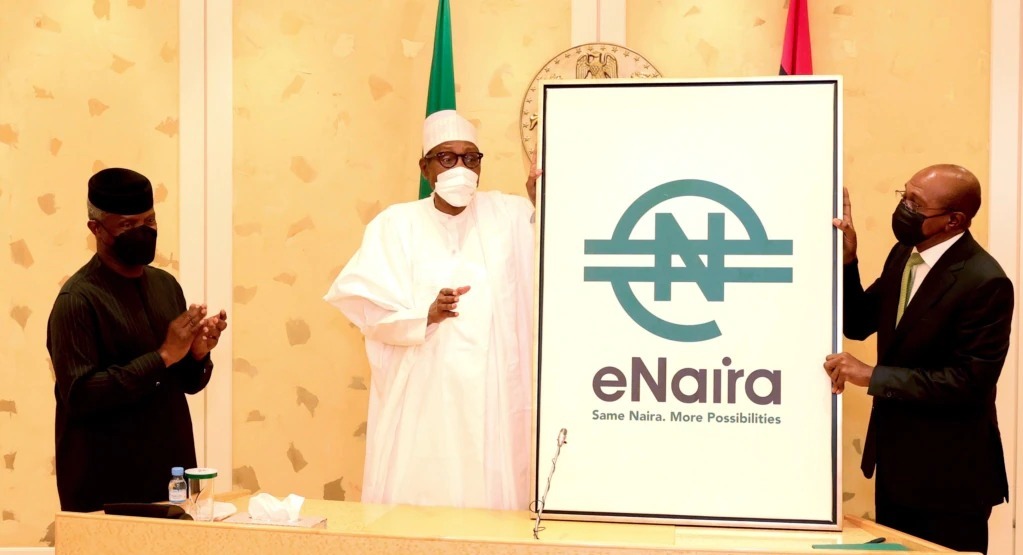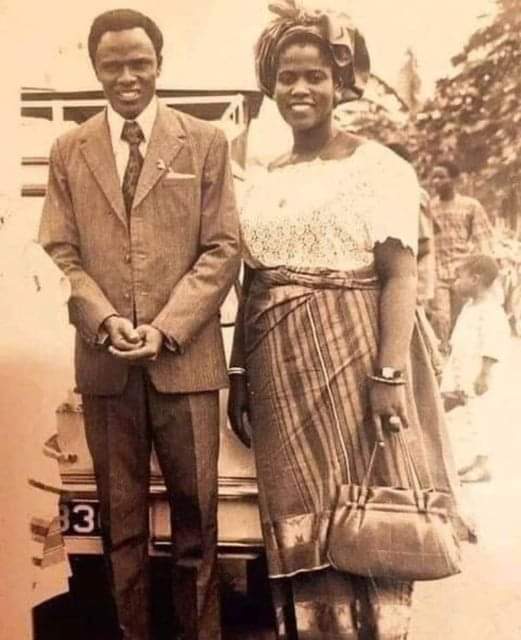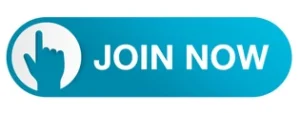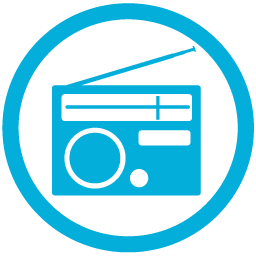ABUJA, NIGERIA —
The Central Bank of Nigeria is marking one year since launching Africa’s first digital currency, the e-Naira, which leaders hoped would boost the economy and fight inflation. But one year later, critics say the e-Naira has not lived up to expectations.

Top government officials, company executives and central bank officials marked the first anniversary of the e-Naira on Tuesday in Lagos.
During the event, officials praised the digital currency and said more than 700,000 transactions worth $18.3 million have taken place on its platform since the launch in October of last year.
Officials also said the e-Naira has offered endless possibilities to Nigerians in the financial services sector. Central Bank Governor Godwin Emefiele spoke during the event.
“As we speak today, some of the fears that we had at the time of introducing our digital currency which was predominantly centered around the risk of fraud and all that … we have not witnessed any,” Central Bank Governor Godwin Emefiele said during the event. “The e-Naira is expected to enhance financial inclusion, support poverty reduction, enable direct welfare disbursement to citizens, support a resilient payment ecosystem, improve availability and usability of central bank money, facilitate diaspora remittances [and] reduce the cost of processing cash.”
The e-Naira is Africa’s first central bank digital currency and the second in the world, after the Sand Dollar in the Bahamas.
Nigerian authorities say the e-Naira, in theory, maintains its value better the country’s actual currency, which has lost up to 40 percent of its value in the past year.
On Monday, in the lead-up to the anniversary, the CBN held street campaigns and pushed for its adoption among local tricycle riders in many cities including the capital. Authorities offered riders a 5% discount to encourage them to subscribe.

Digital currency expert Messiah Ogbuagu welcomed the campaign.
“I feel what they’re doing right now is the right step in the right direction,” Ogbuagu said. “I don’t think it is too late, it’s a new technology and people need time to understand it, people need time to trust it.”
But Kindness Udobong, chief executive officer of Bitrrenc, a digital technology company, said authorities are moving too slowly.
“This kind of campaign is supposed to have been carried along at the launch of the project,” Udobong said. “There’s supposed to have been this massive enlightenment, awareness, incentivization for adoption, not waiting for one year. Why do you have to wait for one year before you begin grassroot sensitization? We actually expected the e-Naira to have become more like a household name by now.”
The central bank aims to grow its e-Naira merchant base from about 4,000 to more than 7,000 across Nigeria in the coming weeks.
Ogbuagu said the government must engage with private sector players if it wants widespread adoption of the currency.
“The awareness and the means of usage of the e-Naira is not yet clear to the people,” Ogbuagu said. “If the right information is being passed, the e-Naira is a good thing, it helps to achieve the government’s plan of a cashless economy. Give it to the influencers, give it to the youths, and we can push this message to the people directly. In 10 years, it’s achievable.”
Until then, critics say, awareness, education, and internet access could still pose a challenge.
NewLatter Application For Free







